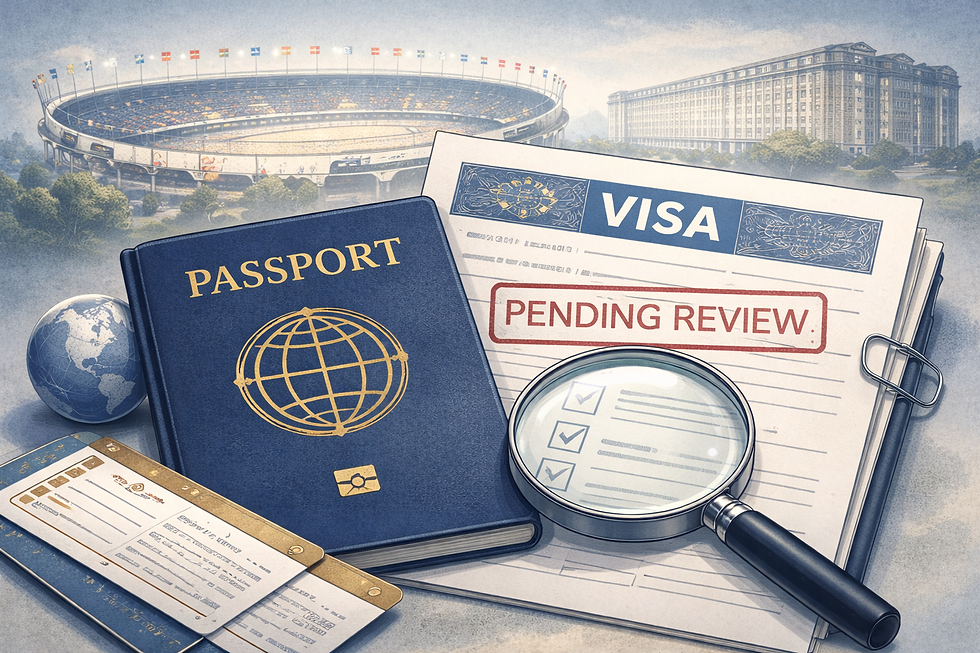DHS Extends Flexibility on “In-Person” Requirements For I-9 Forms for Remote Employees
- Jennifer Grady

- Sep 16, 2020
- 3 min read
DHS Extends Flexibility on “In-Person” Requirements For I-9 Forms for Remote Employees Due to COVID-19
Due to precautions being implemented by employers and employees related to physical proximity associated with COVID-19, the Department of Homeland Security (DHS) first announced on March 20, 2020 that it will exercise discretion to defer the physical presence requirements associated with Employment Eligibility Verification (Form I-9) under Section 274A of the Immigration and Nationality Act (INA). On September 14, 2020, DHS announced that it has extended the flexibilities in its rules related to Form I-9 compliance during the COVID-19 pandemic by an additional 60 days, meaning that is accommodations now expire on November 19, 2020.
Employers that have employees work remotely on account of COVID-19 precautions will not be required to review the employee’s identity and employment authorization documents in the employee’s physical presence. However, employers must inspect the Section 2 documents remotely (e.g., over video link, fax or email, etc.) and obtain, inspect, and retain copies of the documents, within three business days for purposes of completing Section 2. Employers also should enter “COVID-19” as the reason for the physical inspection delay in the Section 2 “Additional Information” field once physical inspection takes place after normal operations resume.
Once the documents have been physically inspected, the employer should add “documents physically examined” with the date of inspection to the Section 2 “Additional Information” field on the Form I-9, or to section 3 as appropriate.
Employers who avail themselves of this option must provide written documentation of their remote onboarding and telework policy for each employee. This burden rests solely with the employers.
Once normal operations resume, all employees who were onboarded using remote verification, must report to their employer within three business days for in-person verification of identity and employment eligibility documentation for Form I-9, Employment Eligibility Verification. Once the documents have been physically inspected, the employer should add “documents physically examined” with the date of inspection to the Section 2 additional information field on the Form I-9, or to section 3 as appropriate.
Any audit of subsequent Forms I-9 would use the “in-person completed date” as a starting point for these employees only.

This provision only applies to employers and workplaces that are operating remotely. If there are employees physically present at a work location, no exceptions are being implemented at this time for in-person verification of identity and employment eligibility documentation for Form I-9, Employment Eligibility Verification. However, if newly hired employees or existing employees are subject to COVID-19 quarantine or lockdown protocols, DHS will evaluate this on a case-by-case basis.
Additionally, employers may designate an authorized representative to act on their behalf to complete Section 2. An authorized representative can be any person the employer designates to complete and sign Form I-9 on their behalf. The employer is liable for any violations in connection with the form or the verification process, including any violations in connection with the form or the verification process, including any violations of the employer sanctions laws committed by the person designated to act on the employer’s behalf.”
What Next?
If your new employees are working remotely, you may complete the I-9 as specified by the new DHS rules. However, this exception is only applicable to a remote workforce. Therefore, if applicable, we recommend that you create a Telecommuting Policy and Agreement (and complete our checklist) to make sure you have the remote nature of the work documented properly to mitigate liability from employees working off-site . It’s also a good time to make sure your remote employees are being reimbursed for their cell phone and Internet use on the job.
We can help you with I-9 compliance, drafting a telecommuting agreement and advising remote work procedures, and advise as to how to reimburse employees.
To learn more about ensuring your business is compliant with state and local laws, schedule a complimentary 15-minute consultation with The Grady Firm’s attorneys; call +1 (949)798-6298; or fill out a Contact Request Form. The Grady Firm has offices in Beverly Hills, Newport Beach, and San Diego, California.
*Jennifer A. Grady, Esq. is licensed to practice employment law in California.
This article is for informational purposes only, and does not constitute legal advice or create an attorney-client relationship. This article does not make any guarantees as to the outcome of a particular matter, as each matter has its own set of circumstances and must be evaluated individually by a licensed attorney.




Comments